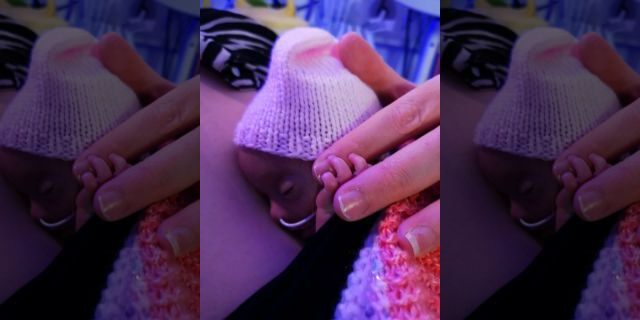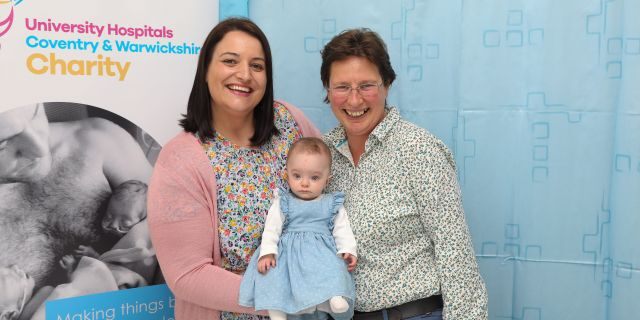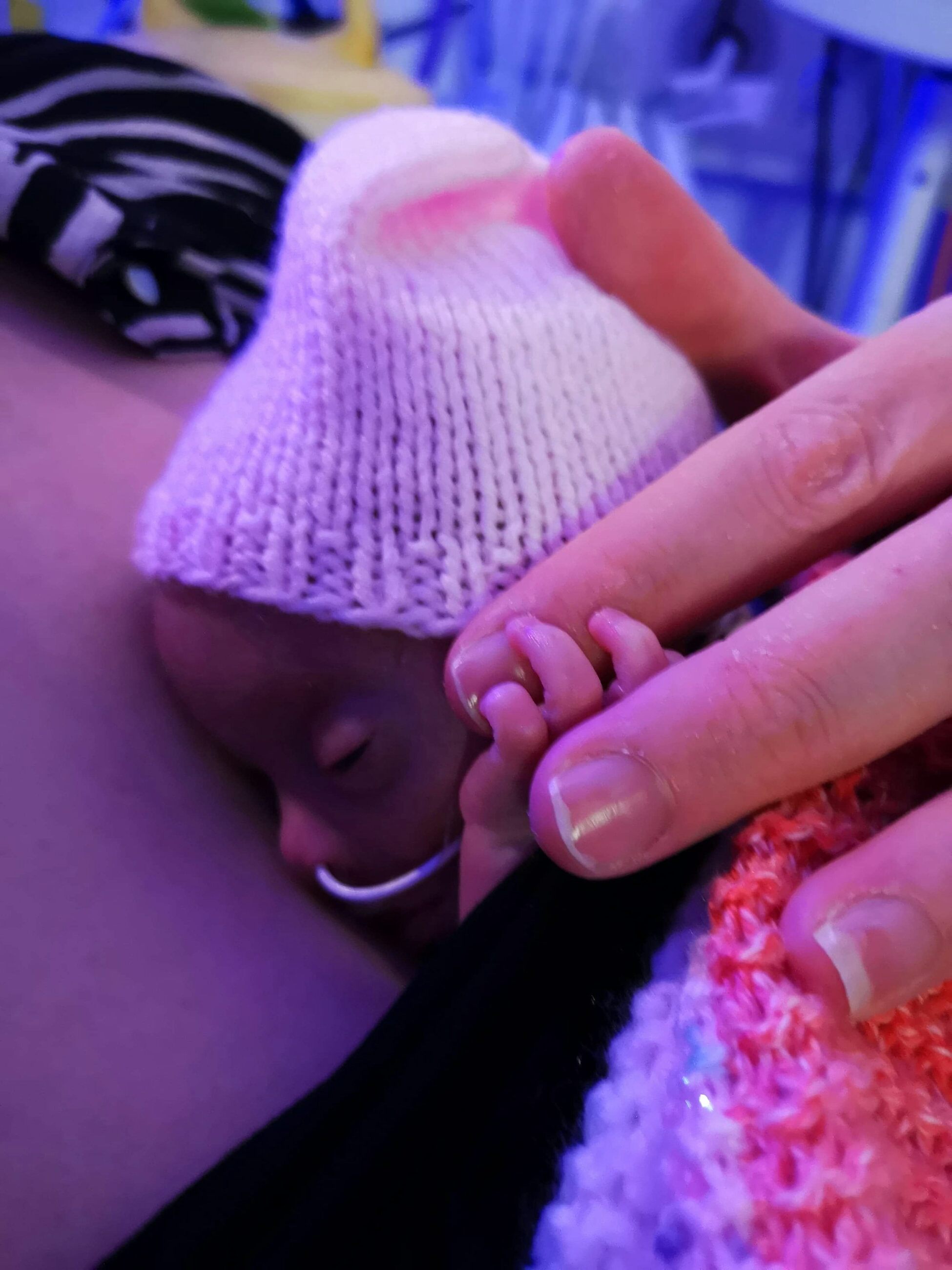[ad_1]
A woman who suffered 13 miscarriages in 10 years finally had her miracle baby after taking steroids to strengthen her womb.
Laura Worsley, 35, lost every baby she conceived, with many pregnancies lasting just a few weeks. But she never gave up hope of realizing her dream of having a child with husband Dave, 48.
INFANT LEFT FIGHTING FOR LIFE AFTER CONTRACTING HERPES FROM KISS AT CHRISTENING, MOM SAYS
The couple suffered their first heartbreak when Worsley miscarried in 2008. She then suffered three more miscarriages in the next two years and doctors referred to an innovative medical research team.

Ivy was born to parents Laura and Dave after they had suffered 13 miscarriages.
(SWNS)
Under the expert care of Professor Siobhan Quenby and the Biomedical Research Unit at University Hospital Coventry and Warwickshire (UHCW), she took part in “world-leading” miscarriage research.
Quenby discovered that Worsley had Antiphospholipid Syndrome, also known as “sticky blood syndrome”, which can cause recurring miscarriages.
During their work with the unit, Worsley also lost two boys, named Leo and Graceson at 17 weeks and 20 weeks.
Leo’s placenta was tested and results showed Worsley also had a second condition, Chronic Histiocytic Intervillositis (CHI), which causes the body to reject the pregnancy.
She took steroids to strengthen the lining of her womb and she conceived naturally for the 14th time last March.
Worsley was given drugs to stop her blood clotting and she finally went into labor at 30 weeks.
Surgeons performed an emergency cesarean section on Sept. 12 last year, and baby Ivy was born prematurely weighing just 1 pound, 7 ounces.
BREAST IMPLANTS LINKED TO RARE FORM OF CANCER, BUT FDA DECLINES TO BAN
Ivy was placed in a neonatal incubator in intensive care but after 11 weeks until she was strong enough to be taken home.
“Even now, nine months on, I can’t believe she’s actually mine,” Worsley, of Kenilworth, Warwickshire, said. “I cannot thank the research and the maternity teams at University Hospital enough, they have helped me to have the baby I always dreamt of. It feels like all of my Christmases have come at once. It’s so important to be able to make a difference for anyone else going through what I went through.”
“Through my story, I want to give others the hope and strength to carry on even when things seem impossible,” she said. “[While suffering the miscarriages], we were told a high dose of folic acid might sort it, but it didn’t. We took part in trials, did all the tests and tried different medications, hoping something would work. I don’t know how I coped, to be honest. Dave stayed strong for me but when we lost the boys, he really struggled with that.”

Despite weighing under 2 pounds at birth, Laura said she knew her daughter, pictured with Professor Quenby, was a fighter.
(SWNS)
“It was all I lived for – I lost years of my life. I just thought, if I can’t have a baby I don’t see a point in my life,” she said. “[The CHI] was causing my placenta to die in places. I wasn’t sure I wanted to try again. But Professor Quenby said she had helped women with this successfully. I thought if there’s that one bit of hope, I had to try again. I spoke to Dave about it and he felt the same.”
“I told myself, this is the last time I’m doing this,” Worsley said. “We didn’t really tell anyone [about the 14th pregnancy]. It was the hardest thing to keep in but the hardest thing to share. I just kept thinking if we tell people, we’re going to jinx it. My husband saw Ivy first. He showed me a photo of her when I woke up.”
CLICK HERE TO GET THE FOX NEWS APP
“I just thought, she’s a fighter. She just kept going forward all the time, she never went back,” she said. “I look at her and think ‘miracles do happen’. I’d read about other people’s miracles, and now I’ve got mine.”
“The steroids do have side effects. But we both decided it was worth one more go,” Quenby said. “I was delighted [Ivy] was here but I just couldn’t bear to see her until I knew she was OK. I’d ask the nurses to go and see her for me but I was too scared. Laura’s case is benefiting people across the world. Many in her situation would have given up, but she just kept going.”
[ad_2]
Source link

